It’s a well-known fact that air source heat pumps can be a cost-effective way to lower your heating and cooling bills, especially if you are currently using inefficient oil or high-cost electric heat. But air source heat pumps have one or two drawbacks that oil furnaces and electric baseboards don’t have, the most common of which is air to water heat pump noise levels.
This is a common question we get here at Nordic heat pumps. Since most homeowners are used to no outdoor noise whatsoever, they are often concerned that the outdoor portion of our air to water heat pump will be loud or noisy, and the that couldn’t be further from the truth.
The Nordic air to water heat pump (and all of our soon-to-be-released air source heat pumps) is specifically designed to minimize outdoor noise.
The unit comes in two parts, the indoor portion and the outdoor portion. The diagram below shows a typical air to water heat pump installation.
The indoor portion houses the compressor and all other major components, and it is typically installed in the basement of the home where noise is not an issue.
The outdoor portion of the unit is housed (you guessed it) outdoors but contains only a fan and an air coil for heat transfer. The only noise you’ll hear from the outdoor portion of the heat pump is from the fan running, which pushes air across the air coil. The air coil picks up the heat (or rejects heat in the summer) from the air and then transfers the heat via a refrigerant into the home for heating.
Depending on the heating requirements of the home, the outdoor portion’s fan runs at different speeds. As a rule, smaller heat pumps run at lower fan speeds, and our largest heat pump runs at higher fan speeds, but the fan will also vary its speed during very hot or cold weather to maximize heat transfer. The faster the fan runs, the louder it will be. An easy way to remember this concept is the bigger the heat pump, the louder the fan.
Below you’ll find a table showing how loud the outdoor portion of the air to water heat pump is at different fan speeds. The sound ratings are measured from a distance of three feet and are measured in decibels (dB), which is a unit of measure that is used to record sound levels relative to human hearing. If you are looking at the numbers below and they don’t mean anything to you, don’t worry, we’ll explain decibels below.
Currently, we manufacture two sizes of air to water heat pump outdoor units. The decibel ratings below are recorded for the larger size. The percentage ratings on the right-hand side of the table represent the fan speed of the outdoor portion of the heat pump as a percentage of the fan’s maximum speed.
Again, the larger the heat pump, the faster the fan will run, except when there is no call for heat in the home, in which case the fan will not run at all.
Air to Water Heat Pump Outdoor Sound Levels
| Fan Speed | Front | Left Side | Back | Right Side | Average |
|---|---|---|---|---|---|
| 20% | 42.0 | 40.3 | 40.7 | 40.7 | 40.9 |
| 30% | 42.9 | 40.8 | 41.5 | 40.9 | 41.5 |
| 40% | 51.0 | 47.0 | 49.3 | 46.8 | 48.5 |
| 50% | 59.8 | 53.0 | 58.5 | 53.0 | 56.1 |
| 60% | 67.6 | 60.7 | 65.3 | 60.5 | 63.5 |
| 70% | 72.7 | 65.5 | 69.8 | 65.5 | 68.4 |
| 80% | 76.3 | 68.3 | 73.2 | 68.6 | 71.6 |
As you can see from this table, the sound levels for the outdoor unit range from 40 decibels at low fan speeds up to 70 (on average) at higher speeds. But just how loud is this?
Understanding Air to Water Heat Pump Noise
We’ve prepared a table comparing the decibel levels of the outdoor unit to other common sounds, also at a three-foot distance:
| Sound Level | Sounds Like | |
|---|---|---|
| 10 | Rustling Leaves |  |
| 20 | Buzzing Mosquito |  |
| 30 | Whisper |  |
| 40 | Refrigerator Humming |  |
| 50 | Light Traffic |  |
| 60 | Normal conversation |  |
| 70 | Dishwasher |  |
As you can see, the answer to how loud is an air to water heat pump is: Between the sound of a refrigerator humming, and a dishwasher running. Again, this is dependent on what size heat pump you choose. Keep in mind that is only when you stand three feet away. The further away you are, the quieter it is.
Understanding Average Air to Water Heat Pump Run Times
It’s also important to note that the air to water heat pump won’t always run. On the coldest days of the year, the air to water heat pump may run all day, but in the shoulder seasons and in the cooling season, the air to water heat pump will run less, or may not run at all.
The one exception to this case is if you have the air to water heat pump paired with a hydronic air handler for cooling, in which case it will run during the cooling season to provide you with whole home air conditioning.
Want to learn more about how this heat pump could help you save on your heating, cooling and hot water costs? Download our FREE Ebook Today!




